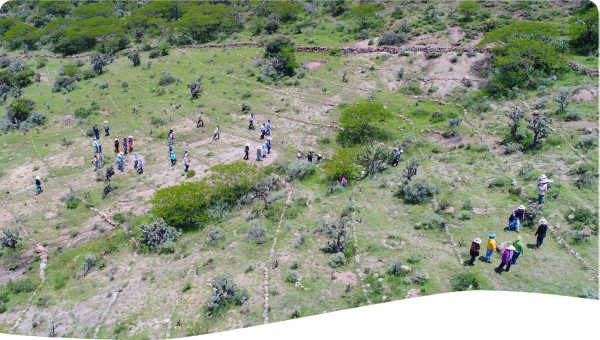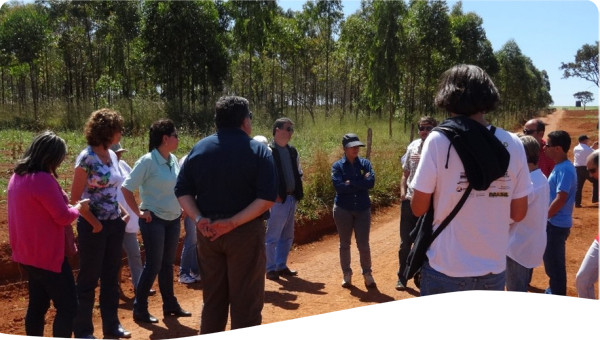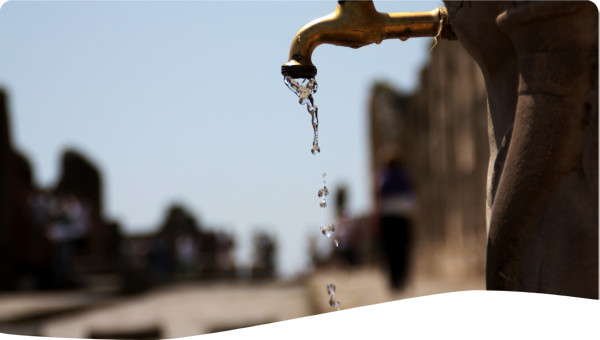Around 2 billion people around the world do not have access to clean and safe drinking water, most of whom live in rural areas. The Association for Humanitarian Development (AHD) works to enhance access to water and sanitation in rural areas of Pakistan and in Africa through the promotion and adoption of the Nadi filter, a household water filtration system. About 355,000 Nadi filters have been installed in the rural communities across Pakistan and Africa since 2006. Work is still going on to help poor rural people and make UN SDG 6 happen to access safe and clean drinking water for all.
During the year 2005, 500 children died due to gastro/diarrhea in civil hospital Hyderabad in Sindh, Pakistan. AHD being present in Hyderabad, felt liability to support local people to prevent from waterborne disease. This was the time AHD kept on learning and exploration for sustainable solution for safe drinking water for the people in Pakistan. The organization came through a solution for safe drinking water in the year 2006.
Nevertheless, AHD found a solution for drinking water, but scale of the need, year by year was touching alarming numbers, the drinking water contamination, water infrastructure, water preservation was already a challenge to public sector; the repeated flood emergencies added more woe in the voices of people. According to the health department data, a total of 891,915 cases of diarrhea were recorded in the province in the year 2022. This remains unchanged as evidence by the research published by National Library of Medicine in 2023 - ‘in Pakistan, a country of over 225 million, 60% of infant and child deaths are caused by diarrhea. Children under 5 comprise of only 15% of the population, yet make up 50% of the mortality rate'. Pakistan has the highest ratio in Asia for infant mortality from diarrhea. The World Health Organization (WHO) has ranked Pakistan 23 in terms of childhood mortality caused by diarrheal illness, with almost 6.4 million cases of pediatric diarrhea annually.
AHD objectively planned to contribute to safe drinking water limit waterborne diseases in Pakistan through its sustainable solution for drinking water. The organization has been witnessing massive funding on WASH sector, but as per reports 85% of Pakistani people do not have access to safe water, and the data reports that we are still behind many African countries. There are challenges to manage WASH sector, probably funding is not only issue, we could see in the year 2021–22, WASH sector financing from international donors totaled PKR 37.5 billion (USD170 million).
AHD is a non-governmental organization established in December 2001-2002 & registered under societies Act XXI of 1860 on May 17th, 2003, with the major objective to work for peace, justice, harmony, and equality through participation of the most disadvantaged and marginalized communities for the sustainability. AHD has initiated several livelihood and development programs by targeting rural women & children. The major accomplishment in this regard, is the introduction of AHD Nadi filter in 355,000 families Sindh & Pakistan to provide access of poorest communities to safe drinking water. AHD’s BSF Project is known as Nadi filter (local name) because Nadi (a mud pot, 32-34 inches tall) is commonly used by local community in household for water storage purposes.
The innovation was made with the major objective of using limited available resources, particularly commonly used mud pots for water storage (such as Nadi) in rural household for filtration that could sustained itself, without any external interventions. In support of this initiative, project by following participatory approach, focuses on mobilization of communities, formation of community groups, construction, installation & maintenance of filter and follow-up trainings in use of the filter, safe water practices & hygiene and sanitation.
Nadi filter technology project was supported by national & international donors: Misereor Germany, UNEP-APFED, WHO Pakistan, ADP & Oxfam GB, CDP Govt. of Sindh, Global Giving, GSK – Save the Children UK, Care International, Hope for Children UK, through corporate donations and by individual donors. AHD has installed more than 355,000 Nadi filters during 2007-2022, providing life-sustaining water to more than 3,550,000 people living in rural communities who are now drinking clean and safe water at their household level.
AHD Nadi filters is an adaptation of the centuries old slow sand filtration process. It is not a newly developed technology; several commercial and community-scale implementations exist in different countries. The largest use of BSF technology has been in the humanitarian arena. But in coastal areas of Sindh, it is first time to take such initiative at household level by AHD. Technology and methods exist to bring improved water and sanitation practices to even the most remote areas. It’s an affordable, sustainable household technology, proven to be very effective in improving the quality of water to make it safe for drinking, cooking, bathing, and cleaning.
The average cost of a Nadi filter which normally serves a household of 8-10 people is only Rs 2,500-3,000. That includes the cost of material, installation, transportation, the cost of training on the filter operation/maintenance and important health and hygiene education. Nadi filter removes 95.0 to 99.0% of organic contaminants, including bacteria, viruses, protozoa, worms, and particles. Safe water produced by the filters is free of discoloration, odor, and unpleasant taste. Nadi filter can produce 50 to 60 liters of water per hour.
AHD has gone through multiple investigations to finalize Nadi – the clay pot for water filters. This research is carried out in many parts of world including Asia, Africa, America and Europe. AHD has been claiming that through Nadi filter ‘reduces faecal coliform by 95-100%, often landing a little over 99%, while viruses are usually reduced by 100%, the level of organic material purified is lowered by 60-75%, iron and magnesium are largely removed, and the level of heavy metals is reduced anywhere from 35-95%. What this is saying is that within a day you can build a filter that will give you some very clean water with fewer parasites, viruses, bacteria and chemicals then what you would normally drink’.
AHD has promoted Nadi filter for the people in developing countries. Because poor people in these countries do not have access to the safe drinking water which corresponds to their environment and atmosphere. Mostly, in current times due to climate change global heat index has been enhancing and people need to drink cool water. And access to cool water is related with electric/solar energy gadgets which cost more for the poor people in these countries. AHD Nadi filter keeps drinking water cool without any cost. AHD is informed that ‘for generations that water kept in clay pots remains cool and clear. The factors that contribute to cooling of water in a clay pot, rate of cooling, evaporation rate and enthalpy drop with time. Three clay pots filled with water were used for the investigation. They were kept in three different environments of sand, concrete and tiled floors. It was observed that within 16hrs and with the volume of 3 liters, average enthalpy difference in 16hrs stands at 21.5KJ/Kg and average enthalpy reduction.
Since 2006 when AHD started working on Nadi filter and helping rural poor communities, the districts of Sindh Sujawal, Thatta, Tando Muhammed Khan, Mirpurkhas, Umerkot, Naukot and Degree find no cholera cases. AHD has many case studies and impact videos at social media and live in villages families using this Nadi filter from 2006 to 2023 and still they want to continue. AHD organized 100 biological tests in 100 villages and taken samples for consecutive 6 months to monitor the water quality and the test results find satisfactory as results shows 90 to 98% of water free of e-Coli. The reports are available here.
Appropriate Technology Selection: Choosing the right water filtration system is crucial, considering factors like water quality, resource availability, maintenance, and cost-effectiveness. Simple, low-cost technologies like biosand or ceramic filters are often best suited for rural African communities.
Community Engagement and Education: Successful implementation requires community participation and education on clean water importance, usage, and maintenance. Involving locals in decision-making boosts project ownership and sustainability.
Integration with Existing Infrastructure: Integrating filtration systems with communal water sources or networks enhances accessibility and effectiveness. Leveraging local resources minimizes costs and boosts scalability. Considering cultural preferences improves community acceptance and adoption.
Maintenance and Sustainability: Regular upkeep is vital for system longevity. Training locals for routine maintenance tasks and establishing sustainable funding mechanisms ensure system sustainability.
 Case studies
Case studies


